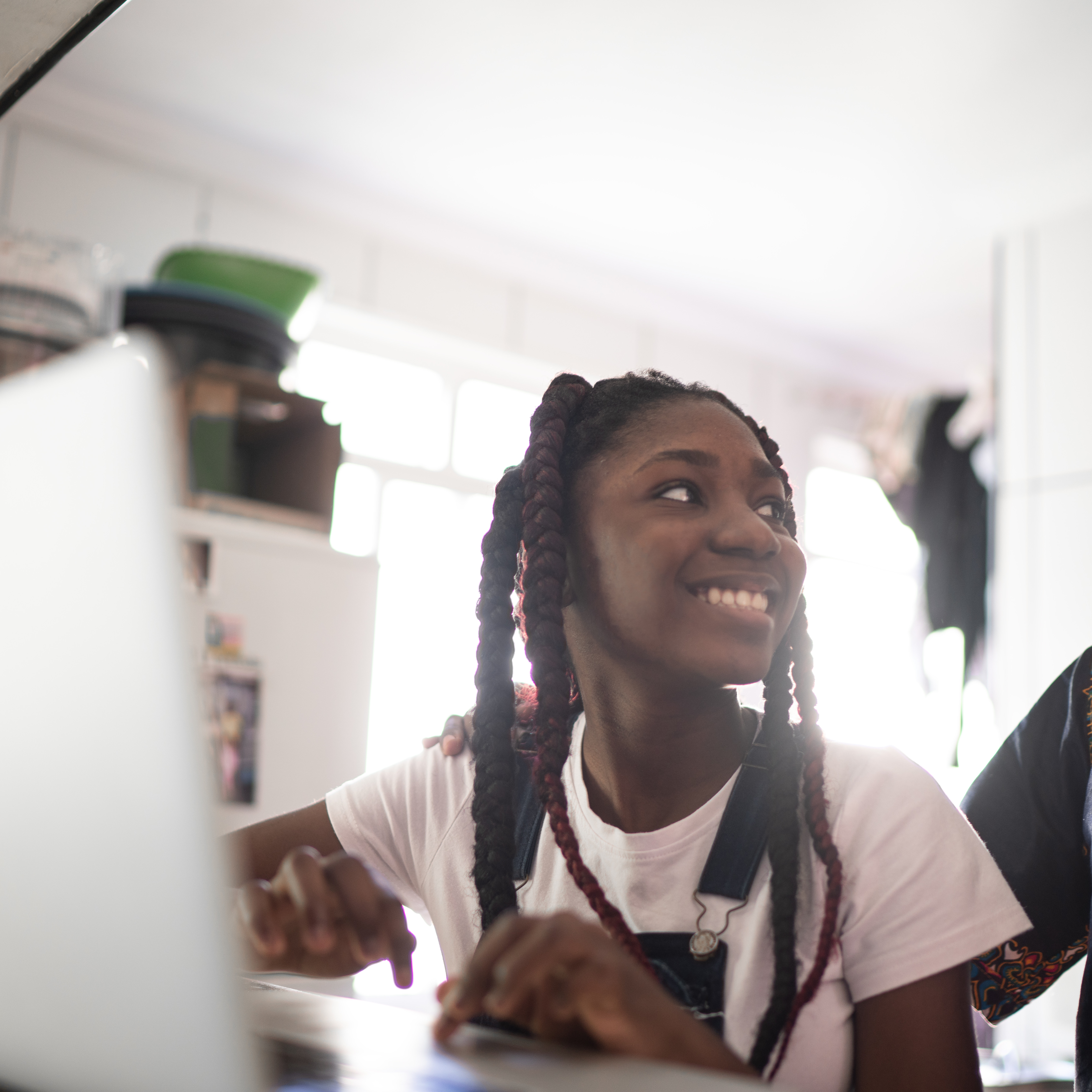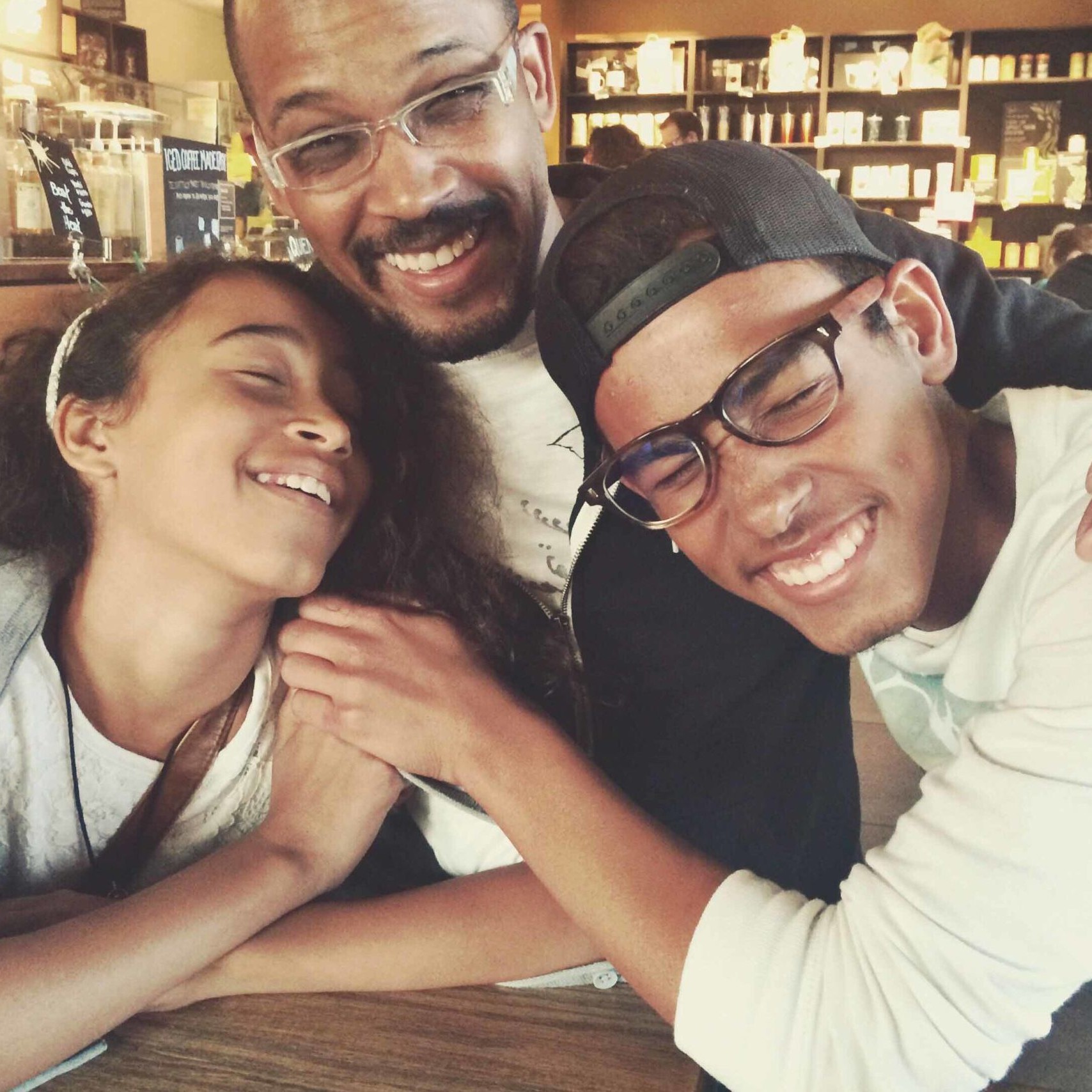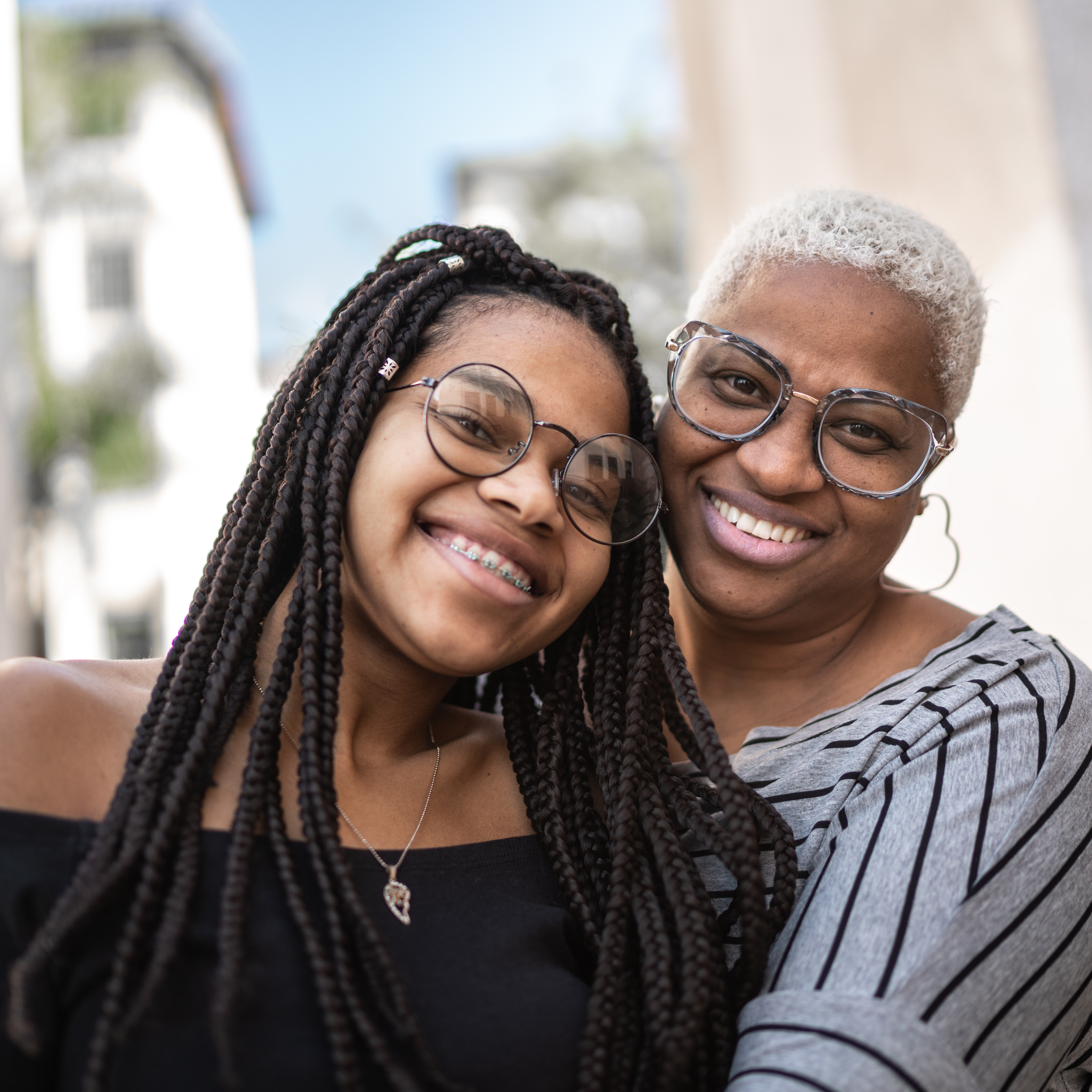In 2017 our oldest child shook our family’s world. It ended up being the best thing that could have happened for us, but at the time it was confusing and frightening.
I’d seen the signs and knew it was coming. I’d wept alone, freaked out with friends and fervently hoped for the problem to go away. I’d picked up and read a glossary of terms. Yet when the moment came, I was still stunned: “Mom, I’m gay and transgender.”
HEAR ESTHER'S TIPS
Esther shares advice for supporting an LGBTQIA+ teen based on her personal experience
The announcement was shocking to me. But my mind did some quick calculations as I looked into the eyes of my oldest child.
Nothing had changed about him; I just knew more about his identity than before. Also, he hadn’t been abused, he wasn’t rebelling, and he wasn’t confused. This identity was not a lifestyle choice. It was then that I felt a shift in my perspective, and I realized I was the one with the problem, not him. And I had some work to do.
“Okay, babe. I don’t know exactly what that means or how to support you, but we will figure it out together.”
That evening I sat with my child as he bravely came out to his father. My husband also saw our child through eyes of love and logical contemplation and came to the same conclusion I had: We will figure this out together. After my husband and I sent our son away with hugs, we prayed about how to guide our child and received a clear answer: Love him unconditionally.
When we told our youngest child about their sibling coming out, they simply asked,
“You still love him, though, right?”
We answered, “Yes, we do.” So, Team Vidal began its mission: Operation Affirmation.
One of our first hurdles was being exiled by the local faith community we had been an active part of for 17 years for supporting our son. So when we reached out to Out Boulder County (OBC), our local LGBTQ+ service organization, we had experienced how it feels when communities invalidate the lives of LGBTQ+ people – often with verbal, physical, and systemic attacks. We asked them to help our family learn about LQBTQ+ identities and practical ways to support our son. From the start, we found in the LGBTQ+ community the love and care we needed.
Another hurdle was ignorance. We had so many questions. Can our son be safe, healthy, and happy? Can we extend unconditional love to all queer people? Is our child’s identity a mental health problem or a variation in his genetics? Can a gay man find deep connection and unconditional love in a life partner? What emotional, medical, and systemic support does our child need to thrive?
So we jumped into re-educating ourselves. We explored different media resources about gay and transgender identities created by queer people, scientists, and other parents of queer children. We also listened to, and interacted with many LGBTQ people at a variety of community events.
Most importantly, we continuously asked our child questions, listened closely to his answers, held him when he wept, and stayed hopeful when he raged against injustice. Over four years, we observed his subtle shifts toward an empowered and joyful version of himself.
With a network of help, our family found answers.
Our child can be safe, healthy, and happy as a transgender gay man. We can freely and wholeheartedly extend love to all LGBTQ+ people. Our child’s identity is valid and natural. Gay couples can have long-term, beautiful relationships for life when society allows them the right to love each other without fear. And we put each emotional, medical, and systemic support in place as we learned what he needed and how to access it. But we also discovered so much more than we had thought to ask.
Queer people are capable of loving the outcasts of our society because they are outcasts in most places around the world. Queer people are creative, resilient, and insightful because systemic oppression forces them to dig deep into themselves to survive. Queer people want to love and be loved, and their hearts ache over society’s condemnation of their uniqueness. Queer people are spiritual and want to connect with those who rejoice over their existence. Queer people are vulnerable to suicide, homelessness, and poverty because too many of us rob them of the respect, autonomy, safety, and health supports all humans have the right to build lives on.
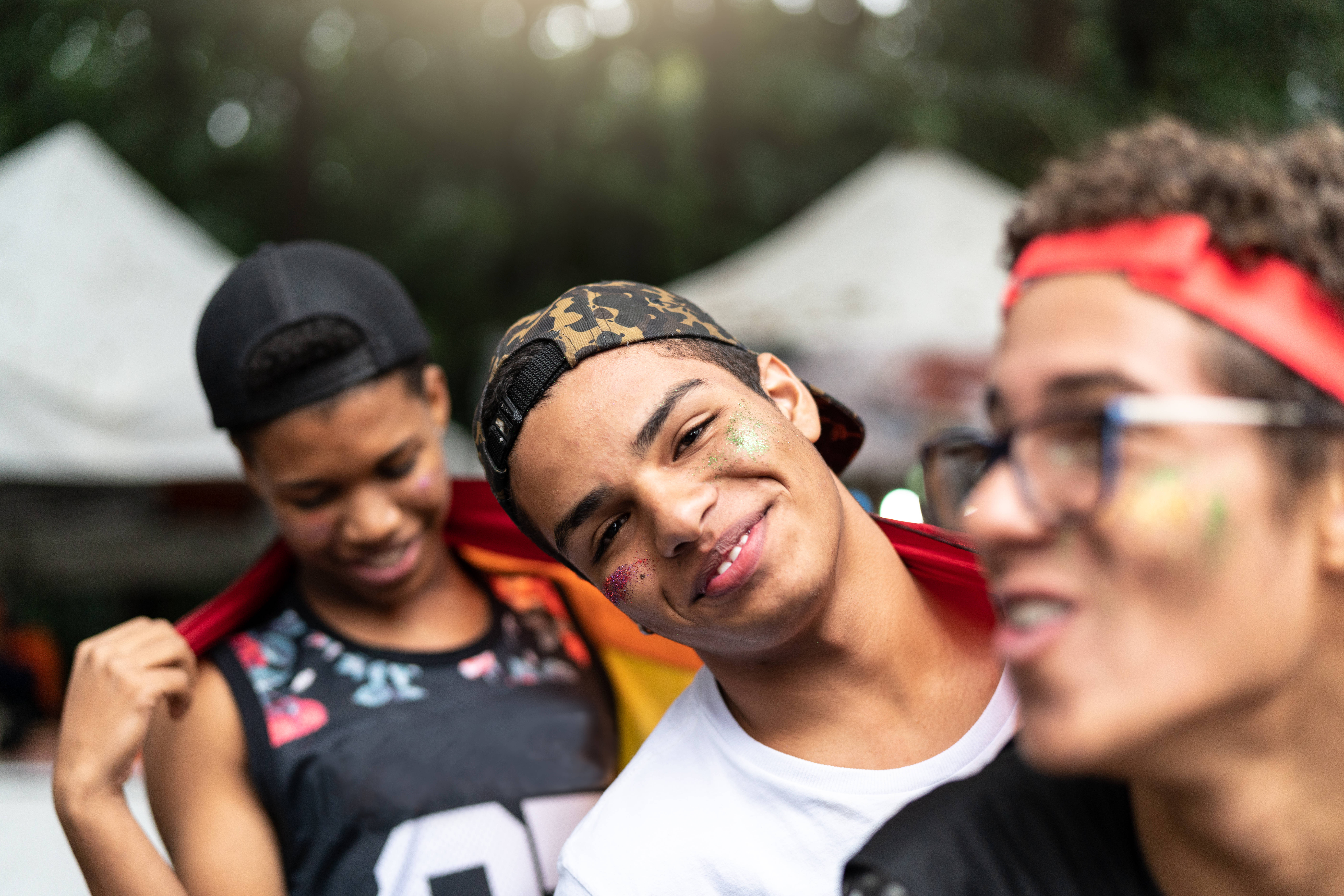
Queer people are just like everyone else: imperfect, insecure, and trying to do the best they can each day. Queer people are fascinating, contributing, and loving humans. Queer people are our kind of people, and we will fight for their freedom.
Recently my youngest child revealed they also have a unique sexual orientation and gender identity. It was through experiencing our family’s transformative affirmation of their older brother that they learned to understand who they are and believe we will also love them. And this time, when my child came out to me, I celebrated their identity and knew we could successfully support them. So, Operation Affirmation continues for Team Vidal. Now, though, it covers not only our family but also all the extraordinary people we’ve learned to love in our LGBTQ+ community.
*To protect her children’s privacy, Esther is using a pseudonym to share her family’s experiences.
Supporting Queer Teens
1 in 5 members of Gen Z identify as LGBTQ+, according to a 2022 Gallup poll. Studies show they are less likely to experience depression and other mental health challenges if they feel supported by their parents. Your support makes a big difference. Visit our LGBTQ+ resources page to find links to helpful guides and local organizations in Colorado working to support LGBTQ+ youth and their families.
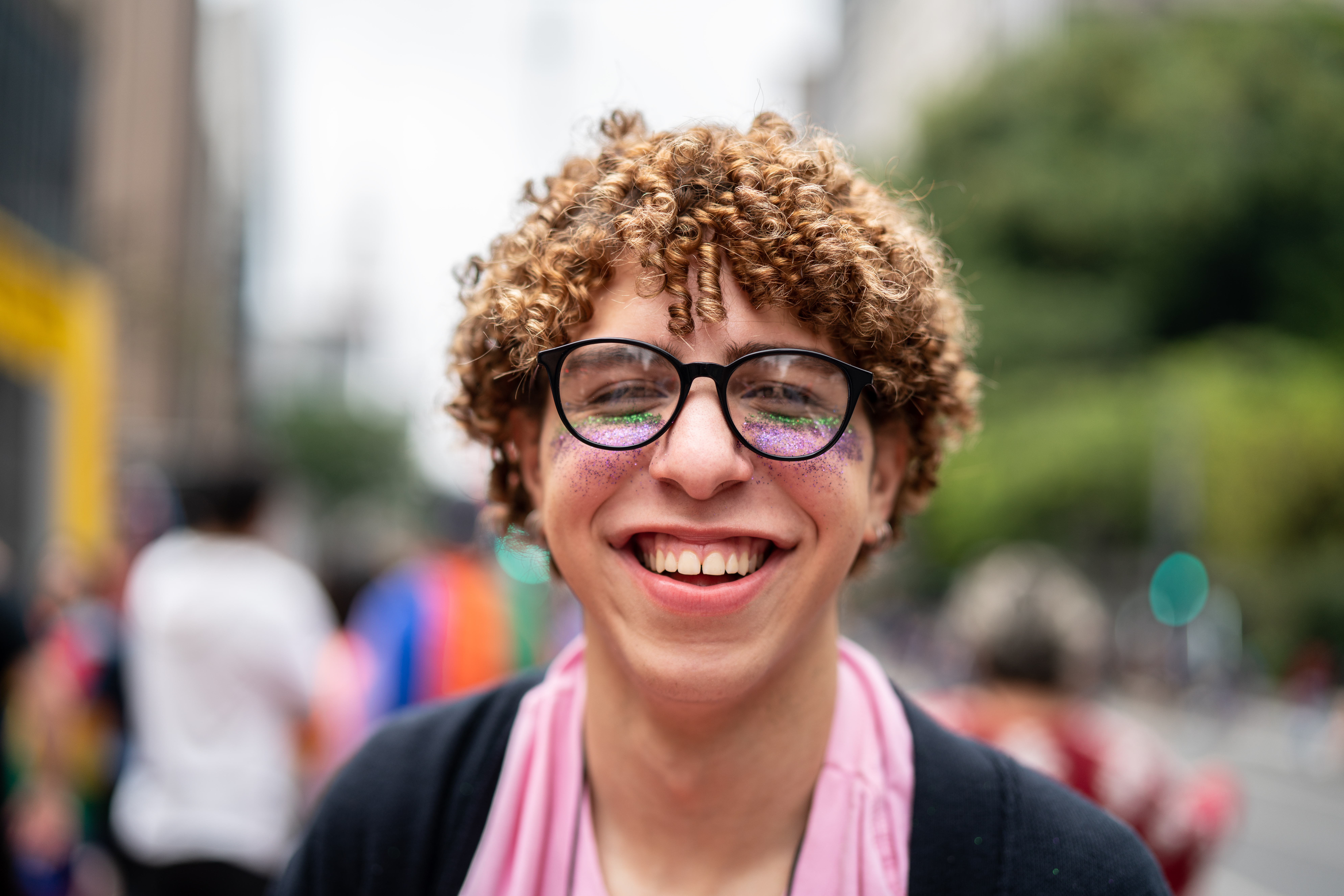
Esther Baldwin-Vidal
Although I have lived many places and continue to explore the world, I call Colorado "home." Its beautiful landscape, constitutional protections for traditionally excluded communities, and access to many kind and interesting people meet all my core needs — other than easy access
to the beach. My hobbies are traveling, dancing, attending concerts, playing games, and watching anime with my husband and children. I also love to learn languages, so in addition to English and Spanish, I have studied some Italian, French, German and Russian and am currently exploring Japanese and Korean. In general, I simply enjoy exploring the various sights,
cuisines, cultural perspectives, and communities our world offers.
